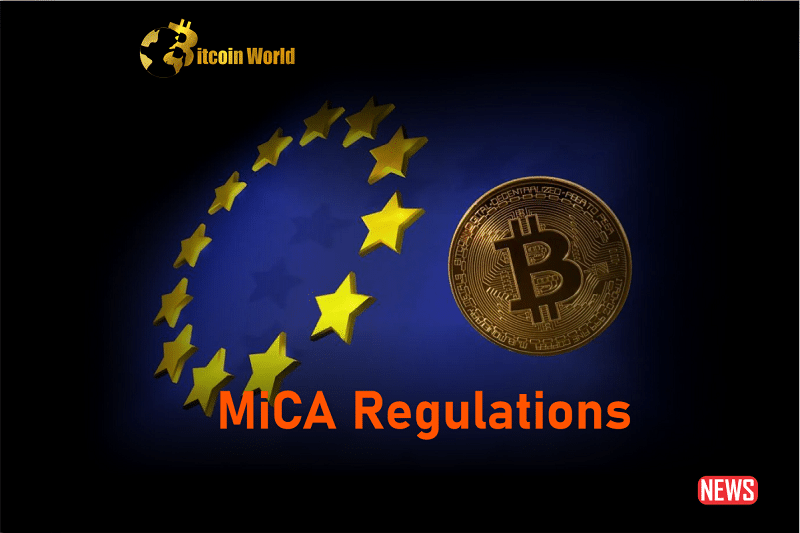The European Union has been the first major jurisdiction to approve a complete crypto law, the Markets in Crypto-Assets (MiCA) regulation, which intends to offer legal certainty for the crypto industry and investors at the EU level by establishing standard norms and standardized guidelines.
MiCA may ultimately stifle innovation, impose a one-size-fits-all approach to DeFi regulation, raise compliance costs for DEXs and DeFi platforms, raise privacy concerns, and necessitate collaboration between the crypto industry and regulators to strike a balance between regulation and innovation.
MiCA may stifle innovation by implementing a one-size-fits-all approach to DeFi regulation that fails to take into account the specific characteristics of decentralized networks. DEXs and DeFi platforms may face higher compliance expenses as a result, limiting their ability to develop and offer new products and services.
The Dodd-Frank Act, as well as other related rules in traditional finance, have been criticized for having a negative impact on innovation. For example, increased regulatory requirements and compliance costs made it impossible for smaller banks and financial institutions to compete with larger ones. As a result, there are fewer community banks, and the banking system has become more centralized.
Similarly, MiCA’s constraints may make it difficult for smaller DeFi businesses to enter the market, impeding industry consolidation. The essential ideas of DeFi, which attempts to provide a decentralized, open, and permissionless financial system, may also be jeopardized by MiCA’s laws on decentralized networks.
As previously stated, the deployment of MiCA is projected to raise compliance costs for cryptocurrency DEXs and DeFi platforms. The MiCA law would enforce a set of rules and regulations on DEXs and DeFi platforms to promote consumer protection, prevent money laundering, and maintain market integrity, similar to how regulatory compliance requirements may be costly and time-consuming in the traditional financial sector.
Traditional financial firms have historically experienced significant regulatory compliance costs, particularly in the years following the 2008 financial crisis. Banks, insurance companies, and other financial institutions are now required to pay higher fees in order to comply with new regulatory frameworks such as Basel III and the Dodd-Frank Act. Staffing, technological, and potentially costly legal expenditures are all included in the cost of compliance.
Similarly, the MiCA rule is projected to raise operational costs and potentially hinder new market entrants. It remains to be seen how these expenses affect innovation and competitiveness in the bitcoin sector. The requirement for regulatory compliance, on the other hand, can act as a barrier to entry for new enterprises, limiting the ability of smaller organizations to compete with larger, more established players that can better absorb these costs.
Because the MiCA rule requires crypto-asset service providers to collect and store a significant quantity of personal data — including users’ identifying information, transaction history, and other sensitive data — privacy concerns will be raised. This data collection may result in privacy violations and make cryptographic assets more vulnerable to hackers.
Traditional financial legislation, such as the United States’ Bank Secrecy Act (BSA) and the European Union’s General Data Protection Regulation (GDPR), have raised comparable privacy issues. The GDPR’s severe data privacy regulations have been criticized for imposing an unnecessary burden on businesses, increasing compliance costs, and impeding innovation. The BSA has also been chastised for requiring financial institutions to comply with onerous reporting requirements that can be costly and time-consuming, as well as possibly exposing clients to privacy breaches owing to the collecting and storage of their personal data.
In the case of MiCA, the significant data gathering and storage requirements may expose users to privacy violations and the exposing of their personal information. Smaller businesses may find it difficult to compete with larger enterprises that can afford to comply with the law because of the higher expenditures. Furthermore, this may inhibit the crypto sector from innovating.
Authorities should consider finding a balance between the need for privacy protection and innovation in the crypto industry through laws like MiCA.















